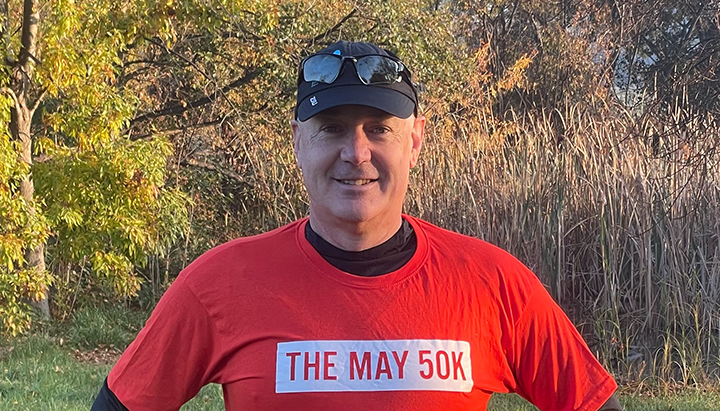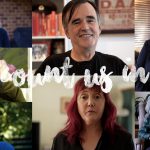In his speech at the National Summit on Neurological Conditions, MS Australia CEO and Neurological Alliance Australia Chair Rohan Greenland calls for greater action to support people living with neurological conditions.
We are bringing members of our rapidly growing Neurological Alliance together, to set out a clear, unambiguous case for neurological conditions to be properly recognised and supported as one of the five leading causes of the disease burden facing this nation.
The sad fact is that neurological conditions, as a disease group, have simply not been given the attention, the resources, the recognition that the other leading disease groups – disease groups like cancer, cardiovascular disease and mental health have, quite rightly, been accorded.
The World Health Organisation states that neurological conditions affect more than three billion people worldwide, making them the world’s leading cause of ill health and disability.
In Australia, we know that neurological conditions are one of the five leading causes of our total disease burden and cost the community more than $100 billion a year.
And yet, there is:
– no national action plan to improve outcomes
– no national minimum data set for neurological diseases
– no neurological workforce plans
– no strategies to improve brain health, including both primary and secondary prevention
– no MRFF neurological mission to provide focussed, sustained funding for research
– no coordinated efforts to improve early detection and intervention
– and no targets and goals in place to measure progress on reducing the burden of neurological disease, improving quality of life and reducing mortality.
Australia may not have a neurological action plan, but the world does, and Australia has signed off on that, the WHO Intersectoral Global Action Plan on Epilepsy and Neurolgical Conditions, endorsed in 2022.
So, at least Australia agrees in principle. We now need to see that ‘in principle’ support be turned into action.
But there is some good news.
The Federal Health Minister Mark Butler has expressed surprise at the lack of a national data set and we are now working with the AIHW and the Health Department to address that glaring gap in our national health data collection.
And I can’t express how important that is, with good, quality data helping all governments allocate resources to match the challenges we face. But if there is now comprehensive, quality neurological data, how can we expect them to do that.
There is also good news on getting the neurological voice heard within the NDIS, with our call for an advisory group to be established within the NDIA now up and running.
So progress on two fronts. In reality, these are but small steps with mountains still to climb.
We are here, at Parliament, because we want our voice to be heard, we want to be counted in.
A federal election is due within 12 months and we want all political parties to commit to – at very least – establishing a task force to recommend what actions should be taken to establish a funded, national action plan to help improve prevention, early detection and intervention, management, care, and research of and for neurological conditions.
If neurological conditions cost our community $100 billion a year, the very least we can do is spend a few dollars on a task force.
In addition to launching our Count Us In campaign, we will shine a spotlight on the lifelong impact of these conditions on those who live with them, together with their family, friends, and carers.
We warmly welcome our politicians, especially Assistant Health Minister Ged Kearney, NDIS Minister Bill Shorten, Shadow Health Minister Senator Anne Ruston, and Green’s health spokesperson Senator Jordon Steele-John.
I spent seven years working with politicians, including health ministers, and I know what an incredibly tough job it is.
Thank you also to our guest speakers Shelly Parer, Craig Gillespie, Sarah and Phil Sharp, Teresa and Steve Lloyd, Professor Pamela McCombe, Dr Tarun Dua and – from our sister organisation in the UK, Georgina Carr.
Thank you to our (now 28) NAA member organisations and to everyone who has travelled some distance to attend the Summit.
Thank you to our industry sponsors who have very generously supported this Summit – without your support, this simply would not have happened. And without your work, your innovation and your investment, the lives of many people living with neurological conditions would be substantially worse than it is.
And a very, very special thank you to Associate Prof Des Graham and the Board of MS Australia who have provided funding to support the Neurological Alliance for the past two years, allowing us to employ our hard-working Executive Officer Andrew Giles, who has done an outstanding job, breathing fresh life into our work and pulling this important event together.
Most importantly, thank you to our attendees who live with a neurological condition – you and you alone are why we are here today for our first National Summit on Neurological Conditions.
It’s an historic occasion.
Count us in!





